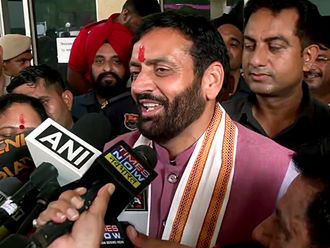One of the more intense debates that has emerged after the resounding victory of Donald Trump as US President, is whether his win reflects a disconnect between the liberal media (represented by organisations like the New York Times) and voters who clearly were not concerned about issues like democracy. Trump won because bread and butter issues, immigration, the economy -- all these mattered much more to those who voted him back to the White House.
Right wing commentators have been quick to sneer at legacy media houses for living in echo chambers and failing to read the pulse of the people. That is partly true and while it is also true that economic distress, primarily due to inflation, and other issues were driven by genuine hardship, the fact is the right wing ecosystem has also been fed a lot of disinformation by it’s own echo chambers.
A poll done by Ipsos last month showed that people who answered questions on crime, inflation and immigration incorrectly (based on factual questions), were more likely to vote for Trump. As Ipsos pointed out, where you get your news from affects the views of voters and right wing news outlets like Fox News or ultra conservative media like Breitbart and Newsmax played up the threat from immigration.
'Podcast elections'
Their study also found that those who consumed Fox News and others like them are least likely to say they have seen their grocery costs go down. In other words, their perception of the state of the economy may be much worse than it actually is.
Simply put, many Trump supporters do not consume news from liberal media outlets like the New York Times or the Washington Post. There is another telling data point. Trump had huge support among young men under the age of 30. In fact, his popularity among Gen Z men has gone up by 15 points since 2020.
One reason appears to be a generation that is struggling with many things especially getting good jobs and they often turn to social media platforms, podcasts and influencers who validate their sense of injustice by targeting liberals and feminists, underlying their masculinity.
Their source of news and information is people like Joe Rogan who endorsed Trump and is widely believed to have the most popular podcast in America.
Echo chambers
Kamala Harris however did not go on his show apparently because she feared a backlash from progressives. The Financial Times reports that some in the Harris camp feel this was a huge mistake since Rogan has a big following among young men and this was a missed opportunity by Harris to woo this demographic.
The Financial Times reports that “Trump’s interview with Rogan has been viewed nearly 50 million times on YouTube, while the podcaster’s interview with vice-president-elect JD Vance has racked up 16 million views.
By comparison, about 29 million people watched Harris’s speech at the Democratic National Convention and fewer than 8 million watched her interview on Fox News.” Trump had another powerful tool by his side: Elon Musk.
The billionaire turned his social media platform ‘X’ into a campaign platform for Trump and the Republicans over the last few months. You had to have had your head in the sand if your ‘X’ feed was not amplifying right wing propaganda all the time.
The fact that Musk has been chosen by Trump to work with him in his new administration, only underscores the point. ‘X’ is now more far right than ever. The plain truth is that we all live in echo chambers -- whether conservatives or liberals. And social media has polarised us even more. This appears unlikely to change.












